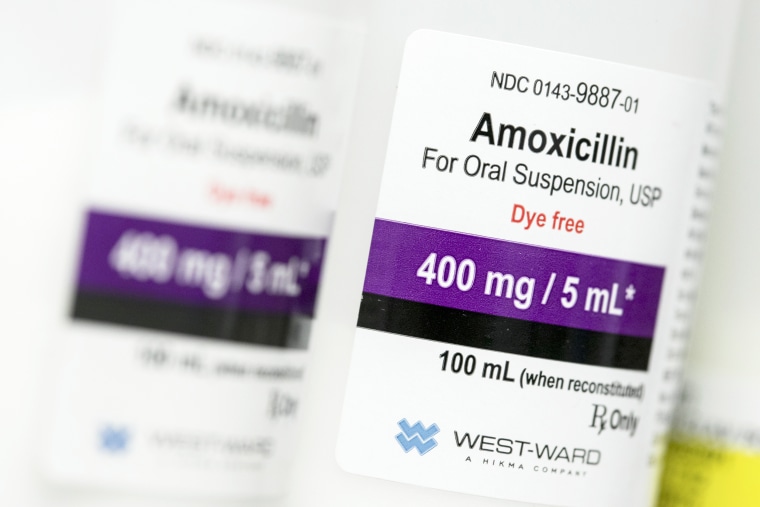One of the most commonly used antibiotics in the country, amoxicillin, is in short supply, federal health officials say.
The notice from the Food and Drug Administration about an oral solution of the drug comes as pharmacy owners report diminished inventory of the medication, which is prescribed to treat bacterial infections, including pneumonia and bronchitis.
The department listed a shortage for an oral powder Oct. 28. Amoxicillin is also available in chewable tablets or capsules.
An FDA spokesman said the department was aware of "intermittent supply interruptions" and is working with approved makers of the medication.
He added that a number of factors can trigger shortages, including manufacturing and quality problems, delays and discontinuations.
A spokeswoman for a key manufacturer of amoxicillin, Sandoz, said significant demand in the United States, Europe and Canada prompted a "supply situation" that has been exacerbated by the impact of the pandemic, manufacturing constraints and the energy crisis.
"We currently face a uniquely difficult situation," she said in an email. "We are working with key stakeholders including governments to find ways to manage this critical situation."
To meet demand, the company has increased worker shifts and provided alternatives to amoxicillin, she added.
A spokesman for another key maker of the drug, Hikma, said the company was delivering in full to current customers in the United States.
"We understand the importance of this medication and are looking at ways to increase production to meet current increased demand," he said.
A spokesperson for a third company, Teva Pharmaceutical Industries Ltd., based in Israel, did not respond to a request for comment.
The American Society of Health-System Pharmacists, which maintains a database of drug shortages, last reported shortages from the companies Monday.

